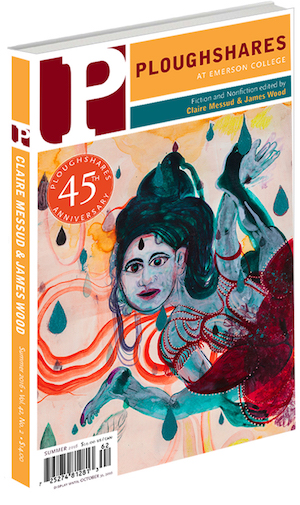Introduction
It’s thought that when Cervantes embarked on Don Quixote, he intended to write a short novel. Henry James’ short stories had a way of growing into novellas and novels, a fate he fondly cursed. With Chekhov, it was the other way round: life was too short for the novel. (Though perhaps just long enough for a play.) Lydia Davis, who has written one novel and many very short stories, has said that she wrote her only novel because the material needed the extra space: “the subject was there first, and it required a novel.”
Perhaps like water finding its level, form eventually finds its own form, and there is very little a writer can do about it? We like the idea that form cannot be imposed, but is fluid and natural, improvised and up for grabs; that hiding inside each genre is the ghost of another form—the essay always about to become a fiction, the novella dreaming of being even briefer than it already is, the short story espying its larger cousin on the horizon. And in a time when prose writing is enjoying an exciting moment of liberation—when fiction and fact, convention and experiment, rules and disobedience, are productively commingling—we are delighted to have been asked to guest-edit this forty-fifth anniversary issue of Ploughshares.
Deliberately, we have followed no particular formal criteria—we’ve just indulged our own agnostic enthusiasm, always excited and always unsure about what exactly fiction is and claims to be. You’ll find here, side by side, stories of only one sentence and long stories that are in the process of becoming novels; works of traditional realist fiction alongside fabulists, aphorists, and experimentalists. There is continuous stream of consciousness, and its apparent opposite, the mere fragment; realism and its supposed enemy, allegory. No matter its form, we sought to include fiction that is vivid, vital, and urgent.
If there is an emphasis, it is to bring to Ploughshares an internationalism of voice and material, to suit a reality that is at once local and increasingly global and complex.
So we have chosen eminent writers from Algeria (Kamel Daoud), Bulgaria (Georgi Gospodinov), and Switzerland (Peter Bichsel); rising talents from Norway (Gunnhild Øyehaug), Australia (Cate Kennedy), and the UK (Carys Davies). We include fictions by the exhilarating contemporary American writers Viet Thanh Nguyen (whose first novel, The Sympathizer, won the Pulitzer Prize earlier this year), and Amity Gaige. The endlessly innovative English poet and dramatist Glyn Maxwell has contributed two fantastical literary imaginings, in which John Keats and John Clare live again, seen reading their work to contemporary audiences. And we are publishing four new stories—delicate as clouds, brief as a change of weather—by our living master of the very short form, Lydia Davis, along with Davis’ translations of two pieces by the brilliantly intriguing Swiss writer Peter Bichsel, who is not yet sufficiently recognized in the English-speaking world.
An issue like this is a gibbous moon, which presents only an illuminated portion of its available wealth. We’re sad that so much superb fiction has had to be passed over—left, as it were, for now, in the editorial shadow. But we’re deeply excited about the striking collection of writers and fictions that we’ve assembled here, and hope you’ll enjoy each singular and memorable contribution.
